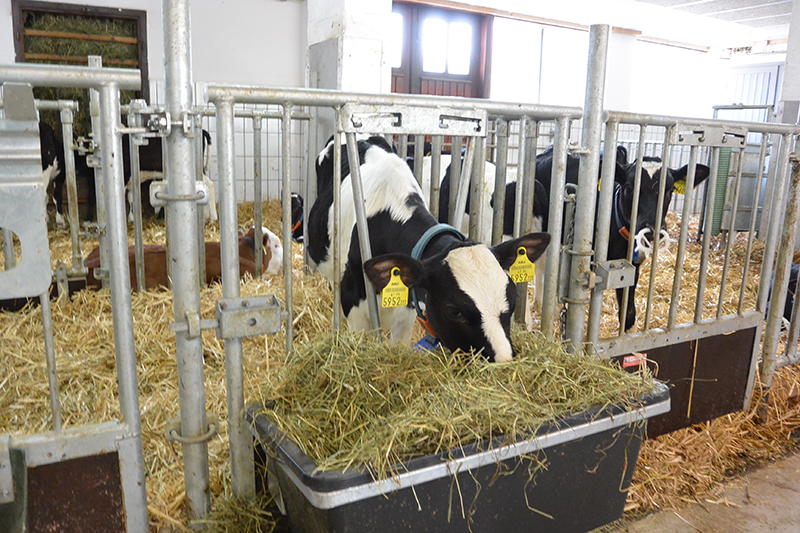In recent years, research in calf feeding has focused on the influence of different drinking concepts on the development of calves. In this new research project, however, the aim is to investigate what influence the composition of solid feed and the quality of the basic feed has on the development of animals in the first three months of life.
The increasing global milk production is based not only on intensive dairy cow feeding but also on intensified calf rearing in recent decades. In this context, the aim is to wean off milk early and encourage early intake of concentrated feed. Since ruminants are inherently cellulose metabolizers and do not rely on feeding starch-rich grains as a source of energy and nutrients, it is useful to investigate feeding strategies that minimize the use of concentrated feed in ruminant nutrition. A recent project showed that by feeding high-quality hay, which has an increased sugar and protein content (~20% each in the dry matter), the use of concentrated feed in dairy cow feeding can be reduced without any loss of performance.
Therefore, this study aims to test what influence feeding high-quality hay with increased sugar and protein content has on the development and health of the rumen of rearing calves compared to a starch-rich calf starter feed. Calf starter consists of easily digestible, starch-rich grains that meet energy needs but can be problematic for the development of a healthy rumen from a physiological perspective. In contrast, high-quality hay, compared to calf starter, is characterized by a higher fiber content and at the same time offers high energy and nutrient content. In addition, it will also be investigated what influence the hay quality (sugar hay vs. typical calf hay) has on feed intake and the development of the calves.







